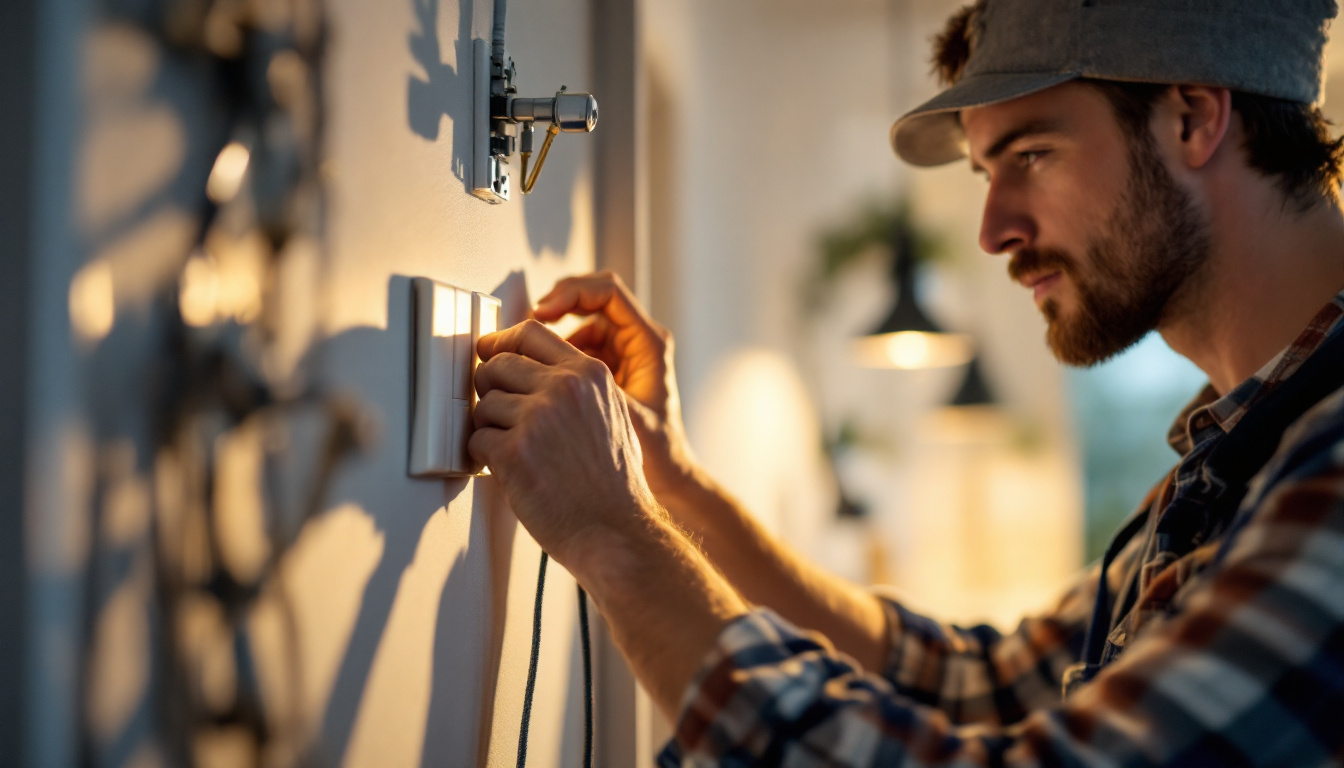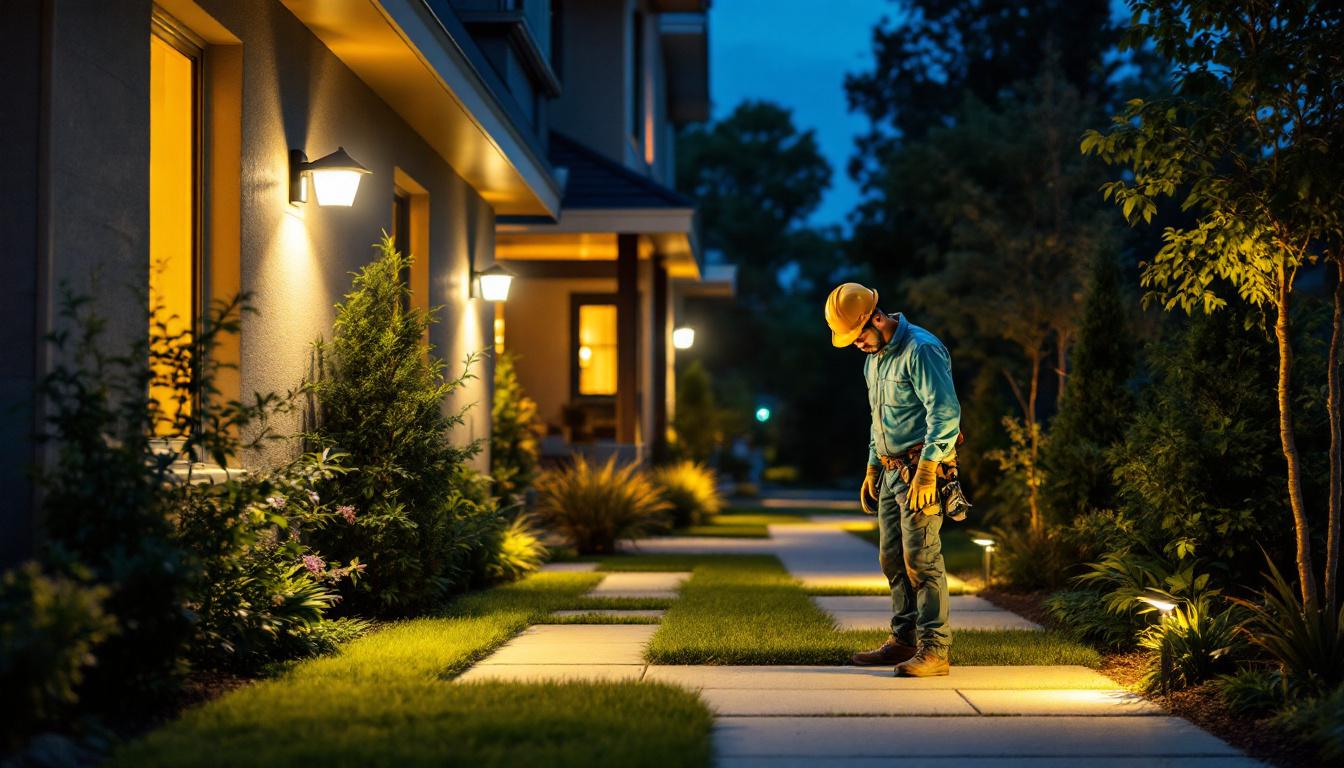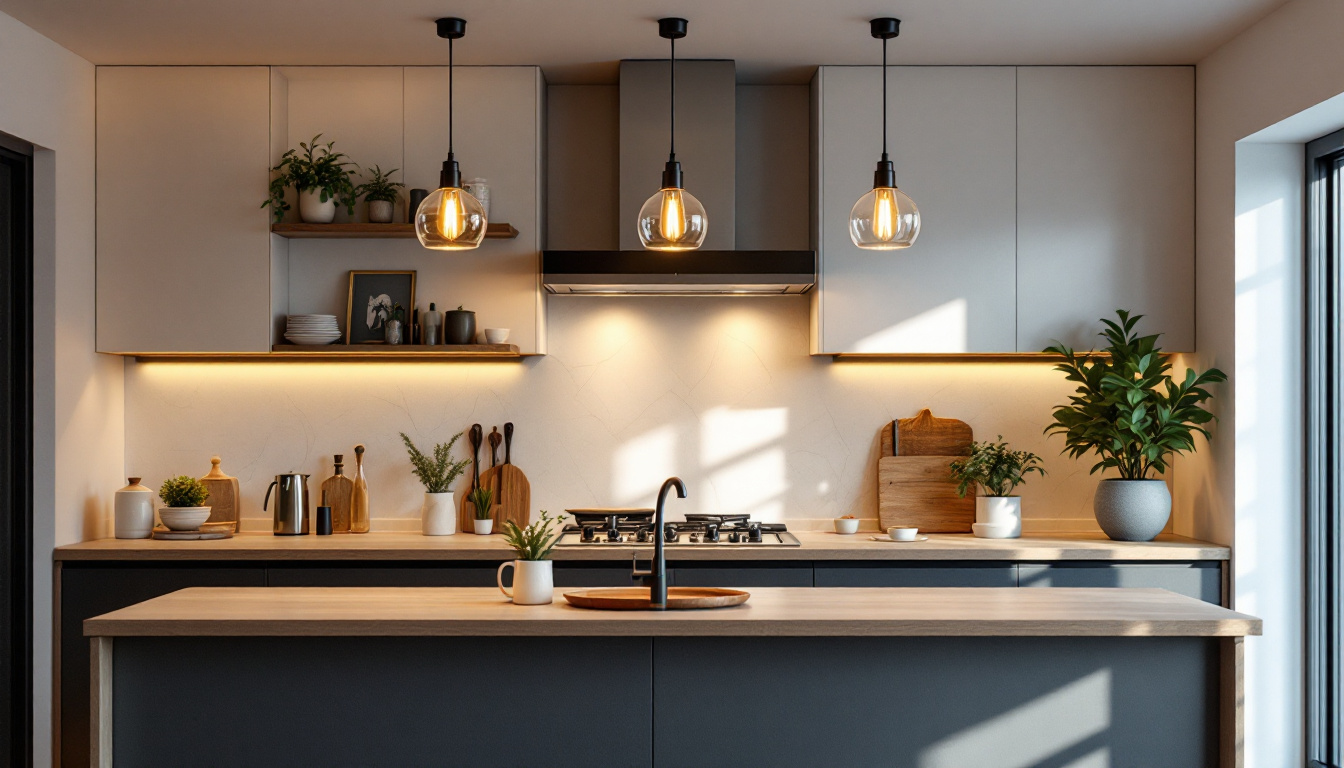
In the realm of outdoor lighting, porch lights play a pivotal role in enhancing both aesthetics and safety. However, improper installation or malfunctioning timers can lead to significant issues for lighting contractors. Understanding the intricacies of porch light timers can help contractors avoid common pitfalls and ensure customer satisfaction. This article delves into the importance of porch light timers, common challenges faced by contractors, and best practices for successful installations.
Porch light timers are essential components that regulate the operation of outdoor lighting systems. They provide convenience, energy efficiency, and enhanced security. By automating lighting schedules, these timers ensure that lights are on when needed and off when not, ultimately saving energy and reducing costs.
One of the primary functions of porch lights is to enhance safety and security around residential properties. Timers allow lights to turn on at dusk and off at dawn, deterring potential intruders and providing a well-lit environment for homeowners returning home after dark. This automated feature is especially crucial in areas with higher crime rates, making it a valuable selling point for contractors. Additionally, the presence of well-placed porch lights can illuminate pathways and entryways, reducing the risk of accidents such as trips and falls, particularly for elderly residents or guests who may be unfamiliar with the surroundings.
Energy efficiency is a growing concern for many homeowners. By utilizing porch light timers, contractors can help clients reduce their energy consumption. Timers prevent lights from being left on unnecessarily, which can lead to significant savings on electricity bills. This aspect not only appeals to environmentally conscious customers but also positions contractors as responsible service providers. Moreover, some advanced timers come equipped with features such as motion sensors or smart technology, allowing homeowners to control their lighting remotely via smartphone apps. This level of control not only enhances convenience but also provides an additional layer of security, as homeowners can simulate occupancy while away, further deterring potential intruders.
Despite their benefits, porch light timers can present challenges during installation and operation. Understanding these issues can help contractors avoid costly mistakes and ensure a smooth installation process.
One of the most prevalent issues lighting contractors face is improper wiring. Timers require specific wiring configurations to function correctly. If wires are connected incorrectly, the timer may not operate as intended, leading to lights that do not turn on or off at the scheduled times. Contractors must ensure they are familiar with the wiring diagrams and specifications for the timers they install. Additionally, using the wrong gauge of wire can also lead to performance issues, as insufficiently rated wires can overheat or fail under load. It is crucial for contractors to double-check their work and, if possible, test the system before finalizing the installation to avoid any future complications.
Another common challenge is the incompatibility of timers with existing lighting systems. Some timers are designed for specific types of bulbs or fixtures, and using them with incompatible systems can lead to malfunctions. Before installation, contractors should assess the existing lighting setup and confirm that the chosen timer is suitable for the application. This includes checking the voltage requirements and ensuring that the timer can handle the wattage of the lights being used. Furthermore, some modern lighting systems, such as LED fixtures, may require specialized timers that can manage their unique electrical characteristics, making it essential for contractors to stay informed about the latest technologies in lighting control.
Environmental conditions can also impact the performance of porch light timers. Factors such as humidity, temperature fluctuations, and exposure to the elements can affect the longevity and functionality of timers. Contractors should recommend timers that are rated for outdoor use and can withstand varying weather conditions to ensure reliability. Moreover, it is wise to consider the placement of the timer; for example, installing it in a sheltered area can help protect it from direct rain or snow, thereby extending its lifespan. Additionally, regular maintenance checks can help identify any potential issues caused by environmental factors before they lead to significant failures, ensuring that the porch lighting remains functional and effective throughout the year.
To mitigate potential issues, lighting contractors should adhere to best practices during the installation of porch light timers. These practices not only enhance the functionality of the lighting system but also improve customer satisfaction.
A comprehensive site assessment is crucial before beginning any installation. Contractors should evaluate the location of the porch light, the existing wiring, and any potential obstacles that may affect the timer’s performance. This assessment allows for informed decisions regarding the type of timer to use and the best installation methods. Additionally, it is important to consider the surrounding environment, such as nearby trees or structures that may cast shadows and affect the light’s effectiveness. Taking these factors into account ensures that the timer will provide optimal lighting conditions, enhancing both safety and aesthetic appeal.
Effective communication with clients is essential throughout the installation process. Contractors should explain the benefits of using a porch light timer, discuss the installation process, and set realistic expectations regarding functionality. This transparency builds trust and ensures that clients are satisfied with the final outcome. Furthermore, it is beneficial to educate clients about the various features available in modern timers, such as dusk-to-dawn sensors or remote control capabilities. By providing this information, contractors empower clients to make informed choices that align with their lifestyle and preferences, ultimately leading to a more personalized lighting solution.
After installation, thorough testing of the timer is essential to ensure it operates as intended. Contractors should verify that the timer correctly turns the lights on and off according to the programmed schedule. If any issues arise, troubleshooting should be conducted promptly to identify and resolve the problem. This proactive approach minimizes the likelihood of callbacks and enhances customer satisfaction. Additionally, it is advisable for contractors to provide clients with a brief tutorial on how to adjust the timer settings and troubleshoot minor issues themselves. This not only fosters independence but also reinforces the contractor’s commitment to customer service, as clients feel more confident in managing their lighting systems effectively.
Selecting the appropriate porch light timer is critical for ensuring optimal performance. Various types of timers are available, each with unique features and benefits. Understanding these options can help contractors make informed decisions.
Timers generally fall into two categories: mechanical and digital. Mechanical timers are often more straightforward and less expensive, but they may lack the advanced features found in digital models. Digital timers, on the other hand, offer programmable settings, allowing for greater flexibility in scheduling. Contractors should consider the needs of their clients when recommending a timer type. For instance, a family with a consistent routine may benefit from a simple mechanical timer that turns lights on and off at set times, while a homeowner who travels frequently might prefer a digital timer that can be programmed to mimic their presence at home.
With the rise of smart home technology, smart timers have become increasingly popular. These timers can be integrated into home automation systems, allowing homeowners to control their lighting remotely via smartphones or voice commands. Contractors should stay informed about the latest smart timer options to meet the demands of tech-savvy clients. Additionally, many smart timers offer features such as geofencing, which can automatically turn lights on or off based on the homeowner’s location, enhancing security and convenience. This level of automation not only adds to the functionality of the home but also appeals to environmentally conscious clients who can program their lights to reduce energy consumption when not needed.
Given the outdoor placement of porch lights, selecting timers with weather-resistant features is essential. Timers designed for outdoor use should have protective casings and be rated for exposure to moisture and temperature extremes. This consideration ensures longevity and reliable performance, reducing the risk of future issues. Furthermore, some timers come equipped with additional features such as surge protection, which can safeguard against electrical spikes during storms. This is particularly important in areas prone to extreme weather conditions, where the longevity of outdoor fixtures can be compromised without proper protection. By choosing robust, weather-resistant timers, contractors can offer their clients peace of mind, knowing that their outdoor lighting systems will function effectively regardless of the elements.
Once the installation is complete, educating clients on the proper use of their porch light timers is vital. This knowledge empowers homeowners to maximize the benefits of their lighting systems and minimizes potential misunderstandings.
Providing clear programming instructions is essential for clients to utilize their timers effectively. Contractors should demonstrate how to set schedules, adjust settings, and troubleshoot common issues. Offering written instructions can also serve as a helpful reference for clients after the installation.
Regular maintenance is key to ensuring the longevity of porch light timers. Contractors should advise clients on the importance of checking the timer’s settings periodically, especially after power outages or seasonal changes. Encouraging clients to clean the timer and surrounding fixtures can also prevent dirt and debris from affecting performance.
Porch light timers are invaluable tools for enhancing outdoor lighting systems, providing safety, energy efficiency, and convenience. However, lighting contractors must navigate various challenges to ensure successful installations. By understanding the importance of timers, recognizing common issues, and adhering to best practices, contractors can avoid potential pitfalls and deliver exceptional service to their clients.
Ultimately, the key to success lies in thorough planning, effective communication, and a commitment to quality. By staying informed about the latest timer technologies and educating clients on their use, lighting contractors can build lasting relationships and establish themselves as trusted professionals in the industry.
Ready to elevate your lighting projects with the most reliable porch light timers on the market? Look no further than LumenWholesale, where we provide contractors with the highest quality, spec-grade lighting products at unbeatable wholesale prices. Say goodbye to local distributor markups and hello to superior lighting that meets the highest industry standards. With LumenWholesale, bulk buying is a breeze, and with free shipping, you’re guaranteed premium lighting at the best value — no hidden fees, no compromises. Enhance your outdoor lighting systems with the perfect blend of quality, affordability, and convenience. Wholesale Lighting at the Best Value is just a click away. Experience the LumenWholesale difference today!

Discover the indispensable role of 3-way switches in modern lighting projects.

Discover the essentials of outdoor security lights with motion sensors in this comprehensive guide tailored for lighting contractors.

Discover how kitchen modern pendant lights can transform your space with style and efficiency.
Discover the common pitfalls lighting contractors face with vintage LED light bulbs and learn how to avoid them.